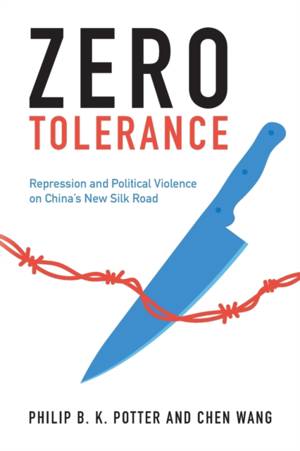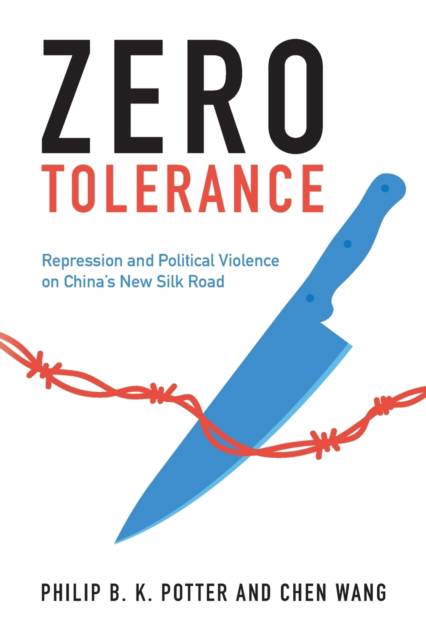
- Afhalen na 1 uur in een winkel met voorraad
- Gratis thuislevering in België vanaf € 30
- Ruim aanbod met 7 miljoen producten
- Afhalen na 1 uur in een winkel met voorraad
- Gratis thuislevering in België vanaf € 30
- Ruim aanbod met 7 miljoen producten
Zoeken
Zero Tolerance
Repression and Political Violence on China's New Silk Road
Philip B K Potter, Chen Wang
Paperback | Engels
€ 43,45
+ 86 punten
Uitvoering
Omschrijving
China's mistreatment of its Uyghur minority has drawn international condemnation and sanctions. The repression gripping Xinjiang is also hugely costly to China in Renminbi, personnel, and stifled economic productivity. Despite this, the Chinese Communist Party persists in its policies. Why? Drawing on extensive original data, Potter and Wang demonstrate insecurities about the stability of the regime and its claim to legitimacy motivate Chinese policies. These perceived threats to core interests drive the ferocity of the official response to Uyghur nationalism. The result is harsh repression, sophisticated media control, and selective international military cooperation. China's growing economic and military power means that the country's policies in Xinjiang and Central Asia have global implications. Zero Tolerance sheds light on this problem, informing policymakers, scholars, and students about an emerging global hotspot destined to play a central role in international politics in years to come.
Specificaties
Betrokkenen
- Auteur(s):
- Uitgeverij:
Inhoud
- Aantal bladzijden:
- 244
- Taal:
- Engels
Eigenschappen
- Productcode (EAN):
- 9781009114905
- Verschijningsdatum:
- 15/12/2022
- Uitvoering:
- Paperback
- Formaat:
- Trade paperback (VS)
- Afmetingen:
- 152 mm x 229 mm
- Gewicht:
- 444 g

Alleen bij Standaard Boekhandel
+ 86 punten op je klantenkaart van Standaard Boekhandel
Beoordelingen
We publiceren alleen reviews die voldoen aan de voorwaarden voor reviews. Bekijk onze voorwaarden voor reviews.











